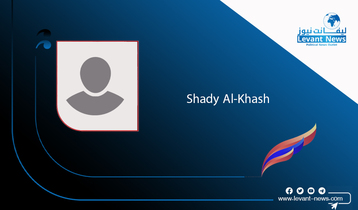-
Netanyahu and after the Gaza truce

The text discusses the objectives of a ceasefire during wars, emphasizing control over the conflict's geographic area and enabling parties to engage in comprehensive political processes. It mentions current efforts for a ceasefire in Gaza through Qatari-Egyptian mediation, highlighting a hostage exchange agreement between Israel and Hamas involving 60 hostages, a four-day halt to fighting, and additional provisions such as releasing Palestinian women and children from Israeli prisons and increasing humanitarian aid to Gaza.
The text describes how the war has placed Netanyahu in a challenging position, with the Israeli forces aiming to uproot Hamas from Gaza. It references the attacks on October 7th, known as "Taufan Al-Aqsa," resulting in casualties on both sides, substantial infrastructure damage in Gaza, and the targeting of protected civilian facilities such as schools and hospitals, which raises concerns about violations of international humanitarian law.
The text suggests that as a result, there has been an unprecedented genocide against civilians, including children and the elderly. It describes the imposition of a blockade preventing the entry of medical, humanitarian, and relief aid, coupled with unprecedented displacement attempts both outside the Gaza Strip to neighboring countries like Egypt and Jordan, and internally from north to south within the region. This situation puts Netanyahu under significant Arab and international pressure to halt the war, given the high number of casualties, missing individuals, and injuries, predominantly among children, women, and the elderly.
The passage outlines the objectives of the war, including Netanyahu's desire to exclude and eliminate Hamas from Gaza, secure the release of Israeli captives held by Hamas, and address concerns about his political future, facing challenges within the Likud party due to a decline in popularity and internal conflicts. The text raises questions about Israel's ability to achieve its military goals in Gaza, the support it receives from Washington and the West during the war, and the potential continuation of Israel's intense military actions if the prisoner exchange with Hamas ceases.
The text suggests that Israel might respond to the demands for an extended ceasefire due to several considerations. These include concerns about giving Hamas an opportunity to regroup, as well as the diminishing patience of the international community with Israeli violations against civilians, casualties, and pressure regionally regarding displacement operations and evacuating the Gaza Strip. There is an implication that a prolonged ceasefire might contribute to settling the entire Palestinian issue, which is not desired by Arab and Islamic countries.
The text points out that the continuation of displacement operations in the southern part of the Gaza Strip could lead to a humanitarian crisis, especially with the approaching winter and challenging conditions. It emphasizes the pressure on Israel, taking into account the concerns of Israeli hostages' families, the satisfaction of settlers, and the potential expansion of the Lebanon-Israel border conflict with occasional exchanges of gunfire between Hezbollah and Israel. Additionally, the text mentions the threat posed by Houthi militias to Israeli ships in the Red Sea and the Gulf of Aden. The major dilemma for Netanyahu lies in the rising voices of his political competitors who criticize him for the outcomes of the war.
The text discusses the increasing strength of Netanyahu's political competitors, particularly Benny Gantz, who leads the national camp. Internal polls indicate that 50% support Gantz, 29% support Netanyahu, and 21% are undecided, indicating a potential shift in political dynamics. The intelligence failure in preventing the "Taufan Al-Aqsa" events and Netanyahu's relationship with the Minister of Defense, Yoav Galant, and Benny Gantz, the head of the national camp, are highlighted as crucial factors. Internal dynamics, the management of Gaza in the future, involvement of regional or international parties, and the challenges Netanyahu faces contribute to uncertainties about the political future of both the Gaza war and Netanyahu himself.
The text emphasizes the crucial factor of Washington's continued support for Israel, especially considering the challenges posed by domestic opposition in the United States and some European countries. The global economic impact of the Russian-Ukrainian war, concerns about oil and energy markets, and calls for independent investigations into potential war crimes during the recent Israeli government's aggression in Gaza are contributing to a complex geopolitical landscape. These considerations may cast shadows on the upcoming days, affecting Netanyahu and his right-wing government should they choose to persist in this challenging war.
Indeed, a two-state solution, returning to the path of peace and negotiations based on international legitimacy, and the Arab Peace Initiative could potentially secure the rights of Palestinians and the establishment of their state with East Jerusalem as its capital along the 1967 borders. This is a call echoed by the international community as a solution to end this seemingly endless conflict.
Dr. Saad Abdullah Al-Hamid
You May Also Like
Popular Posts
Caricature
BENEFIT Sponsors BuildHer...
- April 23, 2025
BENEFIT, the Kingdom’s innovator and leading company in Fintech and electronic financial transactions service, has sponsored the BuildHer CityHack 2025 Hackathon, a two-day event spearheaded by the College of Engineering and Technology at the Royal University for Women (RUW).
Aimed at secondary school students, the event brought together a distinguished group of academic professionals and technology experts to mentor and inspire young participants.
More than 100 high school students from across the Kingdom of Bahrain took part in the hackathon, which featured an intensive programme of training workshops and hands-on sessions. These activities were tailored to enhance participants’ critical thinking, collaborative problem-solving, and team-building capabilities, while also encouraging the development of practical and sustainable solutions to contemporary challenges using modern technological tools.
BENEFIT’s Chief Executive Mr. Abdulwahed AlJanahi, commented: “Our support for this educational hackathon reflects our long-term strategic vision to nurture the talents of emerging national youth and empower the next generation of accomplished female leaders in technology. By fostering creativity and innovation, we aim to contribute meaningfully to Bahrain’s comprehensive development goals and align with the aspirations outlined in the Kingdom’s Vision 2030—an ambition in which BENEFIT plays a central role.”
Professor Riyadh Yousif Hamzah, President of the Royal University for Women, commented: “This initiative reflects our commitment to advancing women in STEM fields. We're cultivating a generation of creative, solution-driven female leaders who will drive national development. Our partnership with BENEFIT exemplifies the powerful synergy between academia and private sector in supporting educational innovation.”
Hanan Abdulla Hasan, Senior Manager, PR & Communication at BENEFIT, said: “We are honoured to collaborate with RUW in supporting this remarkable technology-focused event. It highlights our commitment to social responsibility, and our ongoing efforts to enhance the digital and innovation capabilities of young Bahraini women and foster their ability to harness technological tools in the service of a smarter, more sustainable future.”
For his part, Dr. Humam ElAgha, Acting Dean of the College of Engineering and Technology at the University, said: “BuildHer CityHack 2025 embodies our hands-on approach to education. By tackling real-world problems through creative thinking and sustainable solutions, we're preparing women to thrive in the knowledge economy – a cornerstone of the University's vision.”
opinion
Report
ads
Newsletter
Subscribe to our mailing list to get the new updates!





















